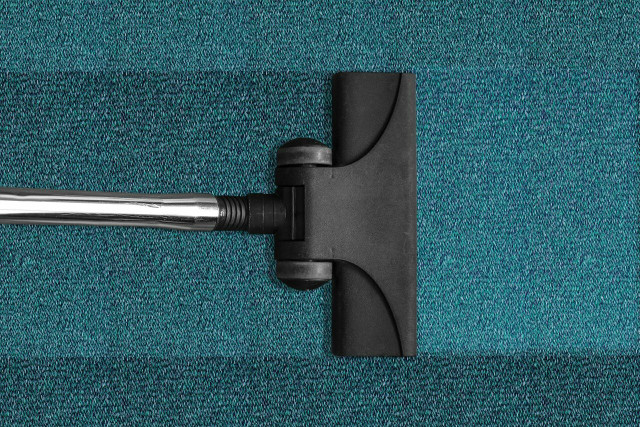Hoovering is a strategy used by narcissistic people who want you back in their life. There are several ways hoovering manifests, all with the goal of breaking the established no-contact.
Hoovering is a common manipulation tactic used by narcissists at the end of the cycle of abuse. The term comes from the popular Hoover brand vacuum, referring to last-ditch efforts by narcissists to suck you back into a relationship with them. Hoovering typically happens in the days, weeks and months after ending the relationship. This may be after you realized their abusive ways and chose to cut off contact, or after the narcissist chose to leave you. Hoovering can occur in many different types of relationships including friendships, romantic partnerships and familial relationships.
Regardless of the type of relationship, it’s important to prioritize your own mental health and keep your distance from abusive people. After going no-contact, it’s easier to recognize the signs you are dealing with a toxic person. When the narcissist then tries to suck you back in, remember they are only seeking your attention for their own benefit. While hoovering hasn’t been the subject of much empirical research, there are certain signs experts recommend to look out for:
1. Sign of Hoovering: Playing Dumb

(Foto: CC0 / Pixabay / Pexels)
A common hoovering tactic is to simply reach out as if nothing happened between the two of you. The narcissist chooses not to address the big fight you had last week, and instead simply texts you “Hey, what are you up to this week?” or “How have you been?”. You may receive texts from narcissists from your past on holidays and birthdays, as these important dates provide hooverers with the perfect excuse to reach out.
2. False Concern Might be Part of Hoovering
Another way narcissists gauge your feelings for them is by reaching out seemingly worried about you. They may text you saying they are worried about you and that they’ve been thinking of you a lot lately. Truthfully, the narcissist is only worried about themselves. They are hoping you will respond and get reeled back into their trap.
3. "Accidental" Calls and Texts



(Foto: CC0 / Pixabay / Mimzy)
Hooverers may call or send you a message “by mistake” and then claim to have meant to contact someone else. There motive here is threefold. Firstly, it provides them with an excuse to break the no-contact. Secondly, they can test how much you still care about them by waiting to see if you respond. Thirdly, they can send “accidental” messages which provoke feelings of jealousy. For example, if an ex texts you a message allegedly meant for their current romantic partner, this might make you jealous.
4. Empty Promises as a Hoovering Tactic
Hoovering often involves promises of doing whatever to takes to make the relationship work. The narcissist may beg you to take them back as a friend or partner, by promising to be a better person. Examples of this include statements like “I promise I will go to rehab if you take me back.” or “I will never yell at you again.” Promises like this are meaningless because if they were true, the person would have made the necessary changes long ago.
5. False Apologies



(Foto: CC0 / Pixabay / jarmoluk)
Apologies often go hand-in-hand with empty promises. Narcissists often reach out with dramatic apologies concerning everything they did wrong, promising never to act like that again. The problem is that you cannot trust them, and the apology comes far too late. If they were truly sorry, they should have stated so in the moment when it was still relevant. Instead of respecting the no-contact you’ve established, they are using false apologies to get you to come back to them.
6. Playing the Victim
Narcissists may use your empathy against you. They may contact you asking for help to overcome their problems, or in an emergency situation such as a car break-down or hospital visit. They make you feel guilty by demonstrating that you are their go-to person in times of need. This is just another way in which they hoover you in for further abuse.
7. Declarations of Love Might Just be Hoovering



(Foto: CC0 / Pixabay / pixel2013)
Narcissists may attempt to hoover you back in by claiming that you are their soulmate and that they miss you so much it hurts. They may ‘love bomb’ you in an effort to convince you to meet up with them. From there, they can more easily manipulate you back into a relationship.
8. Threats of Self-harm or Suicide
Narcissists manipulate others by making threats to harm themselves. They do so in an effort to make you feel guilty, and to test how much you care about them. They want you to break no-contact and to come to their rescue so that they can continue treating you poorly.
9. Gifts and Grand Gestures



(Foto: CC0 / Pixabay / waichi2021)
A narcissist may attempt to win you back by sending you flowers, buying you a new watch or surprising you at work. Not only are these things unwarranted and unwanted, they may constitute stalking.
10. Manipulation Through Third Parties
After establishing no-contact with a narcissist, they may attempt to manipulate you through other people in your life. This includes texts like “I know you hate me right now but can you please tell your daughter I miss her.” This hoovering tactic may also include direct contact to your loved ones, who will act as the hooverer’s ‘flying monkeys‘ by joining in on victim-blaming you and trying to convince you to go back to your abuser.
Read more:
- Seasonal Affective Disorder: How to Conquer Seasonal Depression
- 11 Signs of a Toxic Workplace & Actions to Take
- “Aro” and “Ace”: Understanding the Difference and Relevance
Important Information regarding Health-related Topics.
** Links to retailers marked with ** or underlined orange are partially partner links: If you buy here, you actively support Utopia.org, because we will receive a small part of the sales proceeds. More info.Do you like this post?








